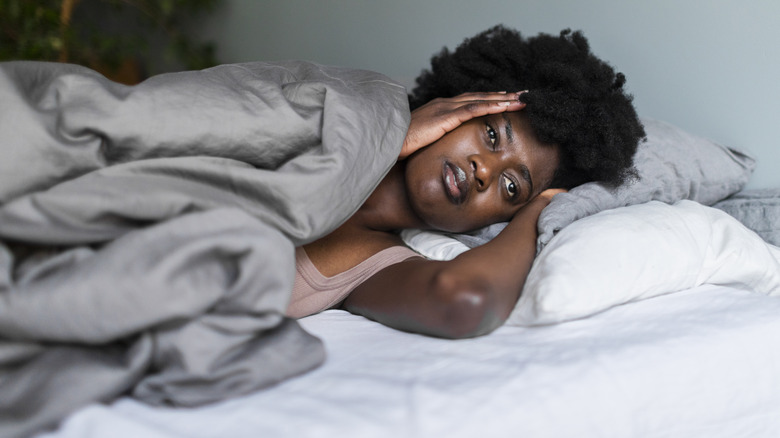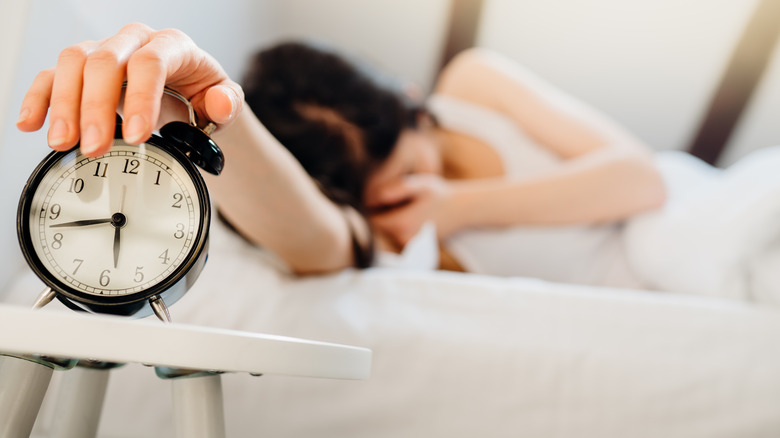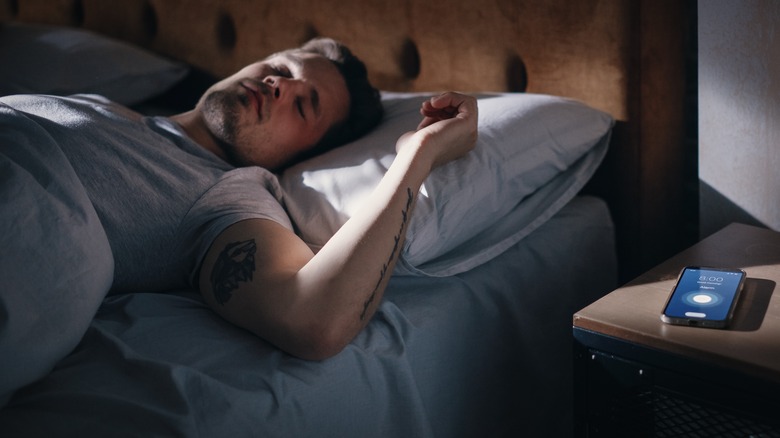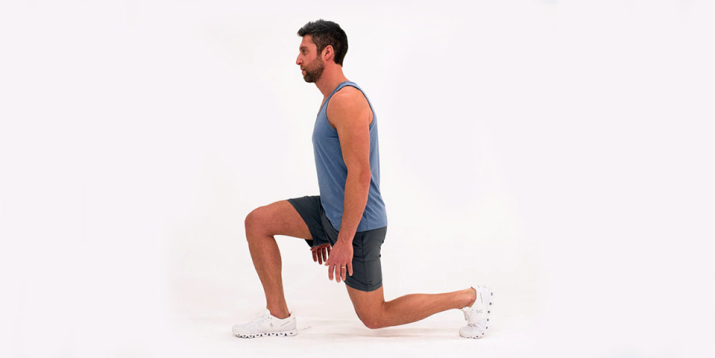Some mornings, the buzzing of your alarm clock — or more likely the ringing of your smartphone — is the absolute last thing you want to hear. Being catapulted out of a pleasant dream by an obnoxiously loud noise isn’t anyone’s idea of fun, especially if you’ve had a particularly rough night of sleep. In some instances, you might be so exhausted that you sleep right through your alarm altogether, only to wake up in a panic as you scramble to get to work on time. Most of us have accidentally overslept at one point or another, but if you’re someone for whom this is a regular occurrence, it may be related to a medical condition.
One possible cause for sleeping through your alarm clock is a circadian rhythm disorder. Experts at the National Heart, Lung, and Blood Institute explain that these disorders occur when our sleep-wake cycle is out of alignment with the environmental shifts between daylight and nighttime.
Circadian rhythm disorders with physiological causes

The Jacksonville Sleep Center explains that two circadian rhythm disorders with physiological causes are advanced sleep phase disorder (ASPD) and delayed sleep phase syndrome (DSPS).
People with advanced sleep phase disorder (ASPD) are often “early to bed early to rise” as they say. In other words, those with ASPD get extremely tired in the early evening and subsequently wake up much earlier than what would be considered the social norm. According to the 2024 edition of “Encyclopedia of Sleep,” these individuals tend to fall asleep between 6 p.m. and 9 p.m. and wake up anywhere between 2 a.m. and 5 a.m. (via Science Direct). However, extreme cases of ASPD have been documented including one in which a patient reported sleeping from 4 p.m. to 12 a.m. nightly. The Jacksonville Sleep Center notes that ASPD patients who manage to fall back asleep after waking are more likely to snooze through their morning alarm. Bright light therapy and behavioral changes can help treat this disorder, according to the Sleep Foundation.
People with delayed sleep phase syndrome (DSPS) have the opposite problem. These individuals often can’t fall asleep until much later into the night and therefore wake up much later into the day. Such was the case for a 15-year-old girl diagnosed with DSPS who regularly fell asleep at 5 a.m. and woke up at 1 p.m. (via Clinical Psychopharmacology and Neuroscience). People with DSPS have a particularly hard time waking up early, which may render an alarm clock useless. Light therapy, melatonin supplementation, and chronotherapy (gradually shifting your bedtime) may be helpful in treating DSPS (per Mayo Clinic).
Circadian rhythm disorders related to circumstances

Also falling into the category of circadian rhythm disorders are jet lag disorder and shift-work sleep disorder (via Jacksonville Sleep Center).
While advanced sleep phase disorder (ASPD) and delayed sleep phase syndrome (DSPS) are both thought to have physiological roots (per American Thoracic Society), jet lag disorder and shift-work sleep disorder are instead related to circumstance. For example, people affected by jet lag disorder may be more prone to sleeping through their alarm if they find themselves in a different time zone. Similarly, people with shift-work sleep disorder who work during the night and sleep during the day may also fail to hear their alarm clock due to extreme daytime sleepiness.
The Mayo Clinic notes that jet lag is temporary and does not require treatment, although light therapy, melatonin supplements, and sleeping pills can help you adjust to your new sleep schedule. Light therapy, melatonin supplements, sleeping pills, and pills that promote alertness are treatment options if doing shift work is unavoidable (per Sleep Foundation).








